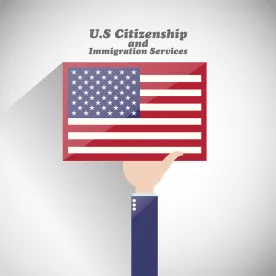Getting a green card is typically the last step in the Lawful Permanent Resident application process, one that immigrants look forward to for many months or even years. Unfortunately, as confirmed by a recent report by the U.S. Department of Homeland Security (DHS), USCIS has experienced many problems lately with correct and timely green card issuance. Specifically, the report by DHS’ Office of Inspector General (OIG) reviewed USCIS’ improper green card issuance and its plans to prevent such errors in the future.
Many of USCIS’ errors were due to limitations of the Electronic Immigration System (ELIS). ELIS is an online system, originally deployed in May 2012. Through ELIS, the initial processing of the USCIS immigrant fee is paid. Now, ELIS also allows for the processing of new and replacement green cards online.
 In its report, the OIG found that over the past three years, USCIS issued at least 19,000 cards that included incorrect information or were issued in duplicate. The majority of errors regarding cards issued with incorrect expiration dates (including the issuance of cards with 10-year expiration dates to immigrants with conditional status who should have been issued cards with 2-year expiration dates), names, birthdates, “residence since” dates, and issuance of duplicate cards were caused by ELIS issues. USCIS has not been effective in its efforts to recover improperly issued green cards, according to the report.
In its report, the OIG found that over the past three years, USCIS issued at least 19,000 cards that included incorrect information or were issued in duplicate. The majority of errors regarding cards issued with incorrect expiration dates (including the issuance of cards with 10-year expiration dates to immigrants with conditional status who should have been issued cards with 2-year expiration dates), names, birthdates, “residence since” dates, and issuance of duplicate cards were caused by ELIS issues. USCIS has not been effective in its efforts to recover improperly issued green cards, according to the report.
Further, over the past three years, the OIG found that USCIS received over 200,000 reports from approved applicants about missing cards. The report confirms that “complaints regarding the non-delivery of green cards have remained in USCIS’ top 10 most common service requests since FY 2011.” Immigrants may contact USCIS to file a complaint regarding their missing Card if they have not received it after more than 30 days since receiving the welcome notice following Adjustment of Status or after 120 days since paying the USCIS immigrant fee or entering the United States with an immigrant visa (if the fee was paid prior to arrival) following consular processing. They should be sure to keep a record of their IOE number from the ELIS system in order to track the Card production with USCIS.
According to the report, green cards are often lost because they are mailed to the wrong address, which may pose a significant security risk. The errors in mailing address are due in large part to the ELIS system limitation regarding updating addresses. Green cards also go missing due to factors beyond USCIS’ control, such as mail theft or misrouted mail. Per the OIG report, USCIS is considering alternative delivery options to improve the missing card problem, including a 2017 pilot program in which a “hold for pickup” option will be utilized.
The OIG found that USCIS’ efforts thus far to resolve these problems, such as manual review of data accuracy, were inadequate. While ultimately the number of improperly issued green cards is a small percentage of the total number issued, improper green card issuance is not only detrimental to the individual immigrant but also costly and cumbersome to USCIS. In fact, USCIS spent almost “$1.5 million to address card-related customer inquiries in FY 2015 alone,” per the report. The OIG recommends that USCIS improve its ELIS system functionality and develop internal processes to avoid or limit inappropriate green card issuance, standardize green card recovery and tracking efforts, and overall increase security efforts. The Director of USCIS has generally agreed with the OIG’s recommendations, and a response is included in the report.


 />i
/>i

